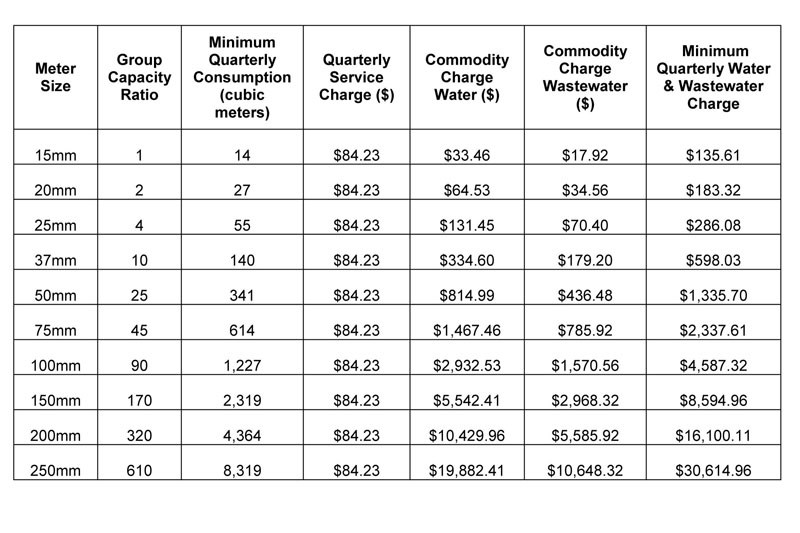The Public Utilities Board (PUB) of Manitoba approved the City of Thompson’s 2018 water and wastewater rates that were previously approved on an interim basis in an April 12 order.
These rates represent an approximately 15 per cent increase over 2017 prices, with the quarterly service charge having being raised by about six per cent ($79.23 to $84.23) and the water rate up 64 per cent from 2017 to $2.39 per cubic metre. On the other hand, wastewater rates have fallen by around 30 per cent, from $1.66 to $1.28 per cubic metre. The minimum quarterly service charge, which includes 14 cubic metres of water, went from $123.03 every three months last year to $135.61 in 2018.
The board also ordered the city to prepare a revised rate schedule for 2019 and to submit it to the board no later than Nov. 30 of this year along with a revised cost allocation attributing water and wastewater utility-related expenses to the utility’s financial projections by the same date. The 2017 audited financial statement for the water utility must also be submitted to the PUB as soon as it is available.
The order also stipulates that the city should do more to bring the amount of unaccounted-for water – currently about 42 per cent of all the water the city produces for the utility from the water treatment plant – which includes water used for activities such as system flushing and firefighting as well as water loss through leaks due to aged infrastructure, closer to the acceptable percentage of 10 per cent.
Other recommendations include making sure that the water utility maintains a minimum working capital surplus equal to at least 20 per cent of annual expenses and that a contingency allowance equal to 10 per cent of variable operating costs be built into future rate projections. In 2015, the working capital of the utility was in a deficit position of $1,189,383 and in 2016 it was a $1,101,827 deficit.
A public hearing on the rates was held in Thompson in January, with three presenters making a case against increased water and wastewater rates in person and another submitting a written presentation. The PUB also received 30 stakeholder responses and a petition with 154 signatures prior to the hearing, most of which expressed concerns about the rates being unaffordable.
“The board is sensitive to the impact of rate increases on customers,” said the order. “It must also consider the sustainability of the utility when approving rates.”
The new cost allocation methodology that the city submits must clearly explain the rationale for attributing specific costs to the water utility, the PUB said.
“The city’s application allocates costs including equipment and labour of its public works department,” the PUB said. “The board believes these costs are more appropriately allocated to the water and wastewater rates as they relate to maintenance of those systems. Removing these costs from the customer service charges allows the ratepayers a chance to adjust their usage to decrease their costs.”




